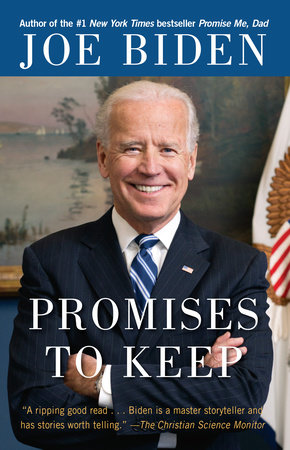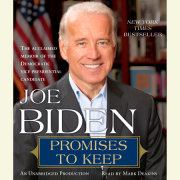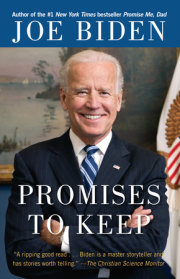The start at Archmere was a hard one for me. I was the second smallest boy in the class, five feet one inch, and just over a hundred pounds. And it didn’t take long for my fellow students to pick up on my stutter or the fact that I was the one kid who didn’t have to stand up for public speaking our first year. But I didn’t want any exemptions, and I didn’t want any excuses. I prayed that I would grow out of the stutter, but I wasn’t going to leave this to chance. I was going to beat the stutter. And I went at it the only way I knew how: I worked like hell. Practice, practice, practice. I would memorize long passages of Yeats and Emerson, then stand in front of the mirror in my room on Wilson Road and talk, talk, talk.
“Meek young men grow up in libraries . . . Meek young men grow up in libraries . . . Meek young men grow up in libraries . . .” I’d stare at myself as I talked to make sure I kept the muscles in my face from contorting. That’s what really made the other kids laugh, and made me freeze. So if I saw my jaw start to clench, I’d pause, try to go slack, smile, then pick it up again.
“Meek young men grow up in libraries, believing it their duty to accept the views which Cicero, which Locke, which Bacon, have given, forgetful that Cicero, Locke, and Bacon were only young men in libraries, when they wrote these books. Hence, instead of Man Thinking, we have the bookworm.”
At home I had constant encouragement from my mom, but I had a second spur there, too: Uncle Boo-Boo. My mom’s brother, Edward Blewitt “Boo-Boo” Finnegan, came to visit us in Wilmington just after Grandpop Finnegan died in 1956, and he stayed for seventeen years. Blewitt was a traveling salesman for Serta, the mattress company, but when he’d come off the road, he bunked in Mayfield with me and my brothers. Boo-Boo could be a great pal. He was a brilliant guy—the only person in the house with a college degree. He’d make me read the
New York Times editorial page, then sit and argue politics with me and my friends. One day he drove Val and me to Washington, D.C., just to see the Capitol. He walked right up to Senator Everett Dirksen and introduced us.
Like my father, Blewitt could not stand vulgarity. When Jimmy or I started trying out curse words we’d picked up at school, Uncle Boo-Boo would scoff:
Vulgarity is a sign of a limited mind trying to express itself, Joey. Why don’t you come up with something more creative in trying to express your displeasure?
But Uncle Boo-Boo had a terrible stutter his entire life, and he used it as a crutch, an excuse for everything he didn’t accomplish. He never married, never had children, and never made a home of his own. He had so much talent, and he squandered it. The day after Pearl Harbor my mom’s four brothers went down to sign up for war service. Three of them got in. My uncle Ambrose Jr. was a flier killed in New Guinea. Jack and Gerry did their part. But the army wouldn’t take Blewitt. Was it because of his stutter? With a few drinks in him, he would tell me how he really meant to be a doctor. He would have gone to medical school if it weren’t for his debilitating stutter. “That’s a damn lie, Edward Blewitt Finnegan,” my mom would say for all of us to hear. “You could have gone to medical school if it took twenty years.” My mom wouldn’t accept excuses.
Even as kids we noticed Uncle Boo-Boo drank a bit heavily. And as time went on, he became more and more bitter. If he was being made fun of—“Hu-hu-hu-hu-hey Bu-bu-bu-bu-Blewitt”—he’d hit back hard. “My n-n-n-name i-i-i-i-s F-f-f-f-f-finnegan, ya know. I bet you n-n-n-n-never even heard of
F-f-f-f-Finnegans Wake! I’ll w-w-w-w-wager you don’t even know wh-h-h-h-h-o wrote it.” Then he’d turn to somebody else and say, “I-I-I-I-I’ll w-w-w-w-wager he’s never even r-r-r-r-read J-j-j-j-Joyce.” He could not stand rich guys. When my dad was making money during the war, he used to remind him he’d never been to college, that no Biden had. “B-b-b-b-Biden’s have money, L-l-l-l-Lord Joseph, but the Finnegans have education.” He grew more bitter with age and sometimes would even go lax on his own rule about vulgarity. “Money talks, Joey, and shit walks.”
I loved Uncle Boo-Boo, but I knew I never wanted to end up like him. So I’d stay in front of my mirror at night, studying my face as I talked:
“A foolish consistency is the hobgoblin of little minds, adored by little statesmen and philosophers and divines.” “Joey, it’s time to go to bed!”
“With consistency a great soul has simply nothing to do. He may as well concern himself with his shadow on the wall. Speak what you think now in hard words, and to-morrow speak what to-morrow thinks in hard words again, though it contradict everything you said to-day.—‘Ah, so you shall be sure to be misunderstood.’—Is it so bad, then, to be misunderstood? Pythagoras was misunderstood, and Socrates, and Jesus, and Luther, and Copernicus, and Galileo, and Newton, and every pure and wise spirit that ever took flesh. To be great is to be misunderstood.”I once even tried the old Demosthenes trick. Demosthenes, the greatest of all the Greek orators, I’d read, had been a stutterer, but he taught himself to speak by putting pebbles in his mouth and practicing elocution. The legend, as I remember it, was that he put these pebbles in his mouth, ran along the beach, and tried to make himself heard above the “roar of the sea.” We didn’t have any beaches or oceans nearby, but I was desperate, so I gave it a try. One of our neighbors in Mayfield was putting a little garden in their backyard, with little paths made of pebbles. So I grabbed about ten of these pebbles and went to the side of our little house, stuck them in my mouth, and tried to throw my voice off our brick wall. For the record, it doesn’t work. I nearly swallowed half the pebbles. So it was back to my room, back to the mirror.
I began to grow into myself at Archmere, literally. By my junior year I was a foot taller than when I entered. My grades were never much better than solid B’s, but I was popular with the girls and with my classmates. In almost any group I was the leader. I was class representative my sophomore year and class president my junior and senior years. I might have been student body president, but Father Diny wouldn’t let me run—too many demerits. And I knew not to cross him. If I was going to be a leader, I meant to lead the right way. I made sure to look out for the kid who was being made fun of. I knew how that felt. I’d pick up some freshman who was being razzed and give him a ride home, maybe stop by the Charcoal Pit so he could be seen with me. I took one younger kid to the prom along with my date.
Where I really worked to excel was sports. I was the leading scorer on our undefeated and untied football team my senior year, and I didn’t lack for confidence on the field. I still wanted the ball. In our last game in high school, at Friends Central in Philadelphia, we were coasting to an easy win when we got the ball back with just a few minutes remaining in the fourth quarter. I remember our quarterback, Bill Peterman, saying, “This is it, guys. Last possession of our career. We each get the ball once, one chance to score.” Counting the quarterback there were four of us in the backfield. He turned to me. “You first, Joe.” We were forty-five yards from the goal line. I guess Peterman figured whoever got the ball last had the best chance to score, and he was calling the plays. “Okay, I’ll take it first. But you’re not getting the damn ball back, Peterman.” I must have run 110 yards, zigzagging from sideline to sideline, but I wasn’t going down until I got to the end zone.
But my proudest accomplishments at Archmere came where I had the least confidence. My sophomore year, I got up in front of the morning assembly and did my five-minute public speaking requirement—no excuses, no exemptions, just like everybody else. And at our graduation in June 1961, when I stood up on the stage and made the welcome to friends and parents without a single stammer, it was the final confirmation that the stutter was not going to hold me back.
I beat that stutter with a lot of hard work and with the support of my teachers and my family. But I have never really let go of my impedimenta. It’s not a heavy load, but it’s always with me, like a touchstone, as a reminder that everybody carries his or her own burdens—most of them a lot bigger than mine—and nobody deserves to be made to feel smaller for having them, and nobody should be consigned to carry them alone.
Copyright © 2007 by Joe Biden. All rights reserved. No part of this excerpt may be reproduced or reprinted without permission in writing from the publisher.






